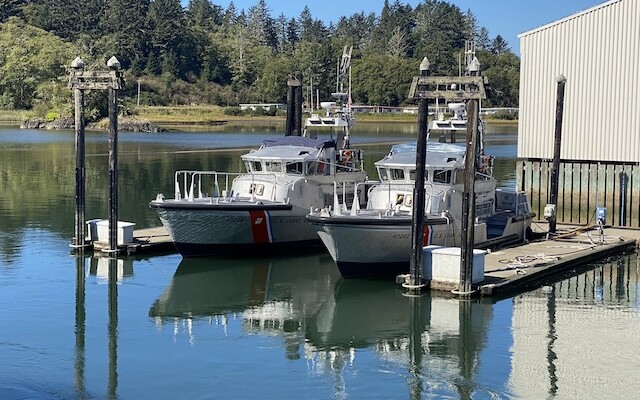There are two articles in the December edition of WorkBoat that shine a light on the skill and expertise it takes to drive commercial and military vessels on U.S. inland waterways.
Back in October, Scott Slatten, owner of Bisso Towboat Co., allowed me to accompany the crew of his newest 96'x38'x16'6" tractor tug, Mr. Brian, as they worked a job in the Mississippi River at Convent, La., located between New Orleans and Baton Rouge.
That job (see page 20) involved pulling the 738'x105.7', 41,684 gross ton bulk carrier Chailease Bright away from the dock, spinning her around, and sending her on her way toward to Gulf of Mexico.
Once we got on site, the task seemed almost impossible, when you compare the size of the tug and the size of the ship. In addition, we’re pulling the ship sideways across the river’s current.
But in the hands of Capt. Keith Blancq and his crew, it was handled like they did this sort of thing every day. In fact, they do. And they give the waterway the proper respect it deserves. Anyone who works on the Mississippi River from Baton Rouge to the Gulf of Mexico will tell you that the river will make you pay for even the smallest mistake. It’s a pro league.
Our cover story this month (see page 28) is about the Coast Guard’s National Motor Lifeboat School, located in Ilwaco, Wash., where the Columbia River meets the Pacific Ocean. The school is there because that area has a wide variety of training zones, and the severe conditions needed to test the equipment and the mettle of their operators, who are looking to become certified as a surfman.
The school’s courses include some classroom work but are primarily focused on hands-on operation and training using four of the six 47' Motor Lifeboats stationed at the school. They place three students on each boat, along with an instructor, an engineer and a crewman.
These men and women are training to search and rescue in the most obnoxious conditions possible. Conditions most of us wouldn’t go near on our best day. Yet these people who want to pilot these boats say this is why they joined the Coast Guard.
Thank goodness there are pilots like these to handle jobs like those.




